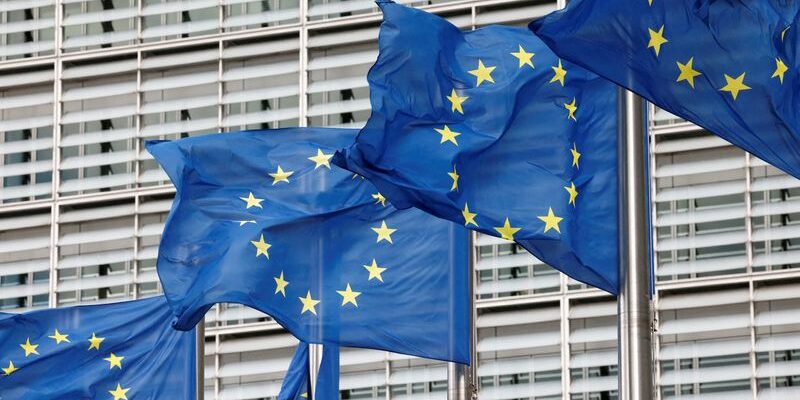by Ludwig Burger
(Reuters) – The European Union on Tuesday began considering a proposal to ban substances known as PFAS or “eternal chemicals”, in what could become the bloc’s broadest chemical industry regulation.
Per- and polyfluoroalkyl substances (PFAS), which do not decompose due to their chemical composition, are used in tens of thousands of products, including cars, textiles, medical equipment and wind turbines, due to their resistance to temperature extremes and corrosion.
PFAS are also associated with several health problems such as cancer, hormonal dysfunction and weakened immune system, as well as environmental damage.
Germany, the Netherlands, Denmark, Sweden and Norway — which is not an EU member state — collaborated on the proposal and said in a joint statement on Tuesday that, if adopted, it would would become “one of the biggest chemical bans ever imposed in Europe”.
“A ban on PFAS would reduce the amounts of PFAS in the environment over the long term. It would also make products and processes safer for humans,” they added.
Once the ban takes effect, companies will have 18 months to 12 years to implement replacements for the more than 10,000 affected PFAS, depending on the availability of alternatives.
A number of products could be exempted, or would benefit from derogations, if they already fall under existing regulatory regimes.
“In many cases there are currently no alternatives, and in some cases there may never be any,” the five countries said, adding that companies now need to start finding alternatives. substitutes.
Two scientific committees of the European Chemicals Agency (ECHA) will review the proposal’s compliance with the overall EU chemicals regulation and then carry out a scientific assessment and consult industry.
The new regulations would likely come into effect in 2026 or 2027, depending on the proposal.
(Report by Ludwig Burger, French version Dina Kartit, edited by Kate Entringer)
©2023 Thomson Reuters, all rights reserved. Reuters content is the intellectual property of Thomson Reuters or its third party content providers. Any copying, republication or redistribution of Reuters content, including by framing or similar means, is expressly prohibited without the prior written consent of Thomson Reuters. Thomson Reuters shall not be liable for any errors or delays in content, or for any actions taken in reliance thereon. “Reuters” and the Reuters Logo are trademarks of Thomson Reuters and its affiliated companies.
